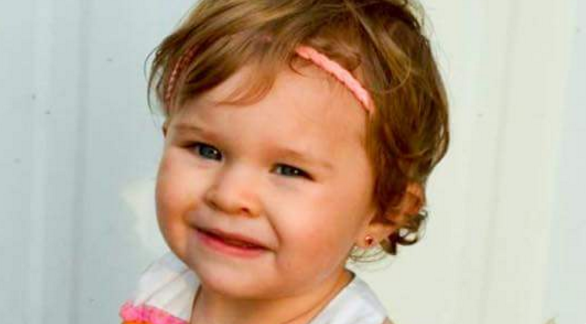What Parents Need to Know About the Child Who Died Under Dental Anesthesia

You may have read about Texas 14-month-old Daisy Lynn Torres, who passed away under anesthesia during a dental procedure back in March. But in case you're seeing this heartbreaking story circulating again online, here's what you need to know.
A pediatric specialist at Austin Children's Dentistry, Dr. Michael Melanson, at first informed Daisy's mom, Betty Squier, that Daisy needed to be put under anesthesia to fill two cavities, because she wouldn't be able to sit still long enough for the procedure.
But Squier recounted to Inside Edition that during the procedure, Dr. Melanson told her, "things have changed, [and it's] six cavities. We're going to go ahead and do 4 crowns and 2 fillings."
Understandably, Squier wasn't so sure putting a crown on baby teeth was necessary. But she explains, "I allowed him to do it because I trusted him."
Unthinkably, Daisy went into cardiac arrest while under anesthesia. She was rushed to the hospital, where she later died.
The medical examiner concluded anesthesia likely killed this adorable little girl, according to the autopsy results. "One can only speculate as to why any treatment was performed considering no indication of dental disease or pathology," the report also says.
In a statement to Inside Edition, Dr. Melanson's attorney said, "There is no evidence that either the mother, the anesthesiologist, or the dentist did anything to cause the event. The best interest of the child was everyone's only goal. Our hearts continue to go out to the family."
As does mine. I am shattered for this mom.
Even worse is that this is not the first case of something like this happening. In July, a 3-year-old girl in California died after being put under anesthesia for a dental procedure, according to People magazine. And in January of 2014, a Hawaiian 3-year-old lapsed into a coma and later died after being placed under "heavy sedation" in the dentist's chair, the Association of Health Care Journalists reports. And those are just the cases that made headlines. As the Huffington Post reports, 31 kids have died under dental sedation in the past 15 years.
RELATED: The Surprising Truth About Cavities
Given this scary statistic, and in light of the tragedy that took the life of Daisy and other kids mentioned here, we talked to Jade Miller, D.D.S., president of the American Academy of Pediatric Dentistry (AAPD), to ask what parents should know. When asked how young might be too young for general anesthesia, Dr. Miller replied, "The primary factor to consider is the severity of the dental disease. Young children with dental pain and/or infection require treatment at any age. Alternatives should be assessed to determine all options that may be available. In some cases, a general anesthesia is the very best approach for that child and can be completed in a safe and effective manner."
If your dentist recommends general anesthesia, Dr. Miller said to keep these three tips in mind:
Get ALL your questions answered. "We always recommend if a parent has any concerns or questions related to their child's dental care to make sure they are answered to their satisfaction," Dr. Miller said.
Don't be afraid to seek a second opinion. If you're uncomfortable with or have questions about your child's diagnosis or treatment, there's no harm in talking to your child's dentist or getting a second opinion.
Know your options. "Parents should understand any alternatives to a general anesthesia, which could include a conscious sedation and the advantages and disadvantages of an alternative approach," Dr. Miller said. "They should ask about where the procedure will take place, such as in a surgery center or a dental office, and the experience and training of the anesthesia provider."
When my first daughter was 14 months old, she was sedated while undergoing a routine procedure to unblock a clogged tear duct in her eye. I felt anguished over the decision to put my baby through this, and worried something horrible could happen. Thank God she was okay, but the 60 minutes she was undergoing the procedure was, honestly, the longest and most heart-wrenching hour of my entire life, to this day.
I realize Daisy's procedure was completely different, but the point is that I can relate to Squier trusting a medical professional's advice as to how her daughter should be treated. And then, to have this happen? It's unimaginable.
Melissa Willets is a writer/blogger and a mom. Follow her on Twitter (@Spitupnsuburbs), where she chronicles her love of exercising and drinking coffee, but never simultaneously.

